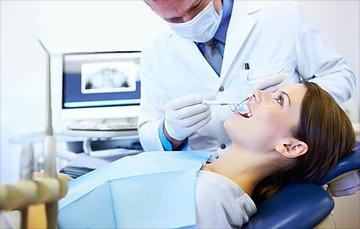
Gum disease is prevalent in over 50 percent of Americans, and the number of affected people is growing at an alarming rate. While gum disease, or periodontal disease, can range in severity from mild to extreme, finding ways to treat and even prevent its progression is essential to restoring oral health.
What Is Gum Disease? What Are Its Stages?
Gum disease is an inflammation and infection of gum tissue that, if left unchecked and untreated, will affect other structures in the mouth. As gum tissue becomes infected and recedes, it leaves delicate areas of teeth and bone unprotected. These areas of the mouth weaken and erode, and they become prone to other types of decay and degeneration. Gum disease may begin gradually, but its effects on oral and overall health can be devastating. It is critical to recognize signs and symptoms of periodontal disease as they start so that this disease doesn’t wreak havoc on you and your health.
If teeth are not kept clean through regular brushing, flossing, and frequent trips to the dentist, a sticky substance called plaque can collect in between and around teeth. Plaque becomes a hardened substance called tartar, which is extremely difficult to remove once it has formed. This tartar becomes a breeding ground for more decay and infection to settle around teeth. It is essential that steps be taken to prevent the progression of periodontal disease.
Gingivitis--Gingivitis is the earliest stage of gum disease. Gum tissue that is irritated by excess plaque begins to weaken and erode, causing damage to underlying tissues. Symptoms of early gingivitis include swollen gums, redness, and bleeding when brushing and flossing. Recognizing these symptoms early on is critical to reversing periodontal disease, as the infection has not yet spread to bone and connective tissue that hold teeth in place.
Periodontitis--If gingivitis is allowed to progress, it becomes periodontitis or a more severe form of periodontal disease. Unfortunately, at this stage, connective tissue and bone have been irreversibly damaged, and infection has spread far below the gumline. Professional therapies and improvement of personal hygiene habits can stop the progression of gum disease at this point, so it is essential to be proactive with dental care.
Advanced Periodontitis--In the advanced stages of this disease, connective tissue and bone holding teeth in place have been destroyed, causing teeth to shift and weaken. These conditions can affect the structural integrity of your jaw as well as cause problems with eating, drinking, and even speech. If professionals cannot save teeth, it will be time to discuss restoration and protection options for your oral health.

Treatment Of Gum Disease
After assessing the health of your mouth, gums, and teeth, your dentist will suggest several options for treatment. The most effective way to remove toxic substances from teeth is to have professional cleanings done at least twice a year. For some people, professional cleanings are required more frequently to keep teeth looking and feeling plaque free. In more advanced stages of the disease, deeper cleaning procedures are necessary to address more pressing health concerns. Techniques like scaling and root planing may sound intimidating, but they are essential to treat diseased pockets of gum tissue and deeper connective tissue. If periodontal pockets are present, it may be necessary to perform gingival flap surgery to ease pressure on already swollen gums. For patients with severe progression of the disease, bone-grafting may become essential as many times the progress has resulted in lost bone deposits.
Forget Treatment---How About Prevention? Knowledge is power, and knowing what to do to prevent periodontal disease will allow you to maintain optimal levels of oral health. So how do we keep periodontal disease from occurring?
Brush your teeth! The simple act of brushing and flossing your teeth removes 85 to 90 percent of food debris and bacteria that can cause the buildup of plaque. Don’t neglect your tongue, either. Bacteria loves that warm, moist surface.
Floss in between teeth regularly. Flossing at least once daily removes bacteria and food debris that hide in hard to reach areas of the mouth, such as in between teeth and along the gumline.
Use a fluoride rinse regularly. Using mouthwash regularly reduces your risk of plaque build up, and it leaves your mouth feeling clean and fresh for hours.
Know your family history, and assess your risk. If you have a family history of gum disease, you are more likely to develop the condition. Eliminating smoking and alcohol consumption can reduce your risk significantly. Follow a proper hygiene schedule, and maintain regular trips to your dental professional to further safeguard against disease and decay.
Exercise and eat a healthy diet. It may sound a bit far-fetched that diet and exercise play a role in oral health, but indeed it is true! Eating a diet loaded with an abundance of fresh vegetables, fruits, and whole grains is essential to maintaining good overall health. Additionally, the benefits of increased oxygen and better circulation obtained through exercise stimulates circulation in the mouth as well. Studies now show that oral health and overall health are inextricably linked and that keeping your total health in mind when caring for your teeth is essential.

Eat Well to Stay Well
Eat a healthy diet, and eliminate acidic, sticky, and sugary foods. Diets that primarily consist of whole foods low in sugar are best to maintain good oral health. If you must indulge from time to time in a sugary or sticky sweet, make sure you follow up with brushing and flossing to reduce the amount of time that this substance is allowed to stick to teeth.
BONUS TIP: Did you know that studies have shown that even people who love their cakes, cookies, and candies can eliminate the urge or even the desire to eat them? It's true!
Participants enrolled chose their favorite two fruits, such as an apple and grapes. With the fruit choice substituted during the usual snack times for 28 consecutive days, with no deviation, over 90% reported preferring the natural snack over their previous sweets. The brain will begin to prefer the healthier choice naturally. Also, apples are grapes are probably less expensive than cakes, and Snickers bars on the front end, and indeed preferred to the cost of cavity repairs and root canals, wouldn't you agree?
Knowledge Is Power
Knowing what signs and symptoms to look for, and then knowing what to do to treat existing areas of disease and decay as periodontal disease progresses is critical to regaining control over your dental health. Talk to your dental care professionals to formulate a care plan that helps you to look and feel your best. The exceptional staff at Dr. Gordon E Krueger are well equipped to handle all types of dental care needs, and their passion is helping you to reach and maintain a state of vibrant health. Visit https://www.gordonekruegerdds.com today for more information and to make an appointment.








